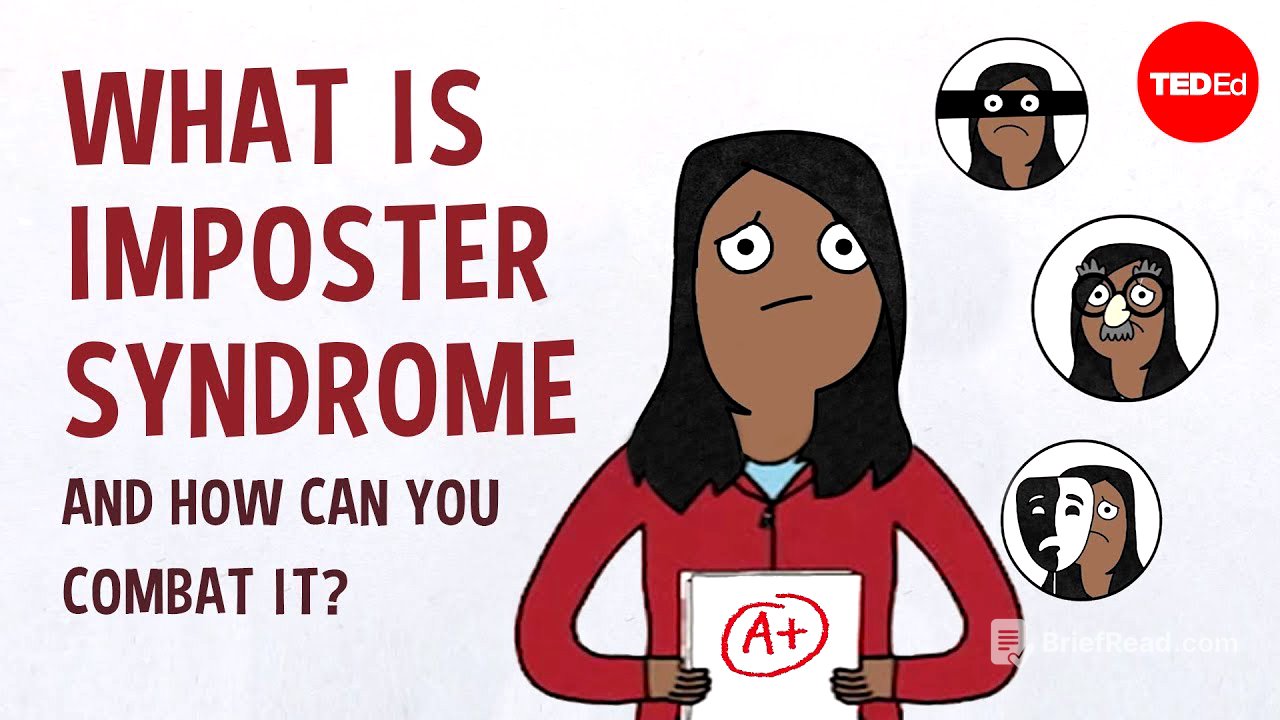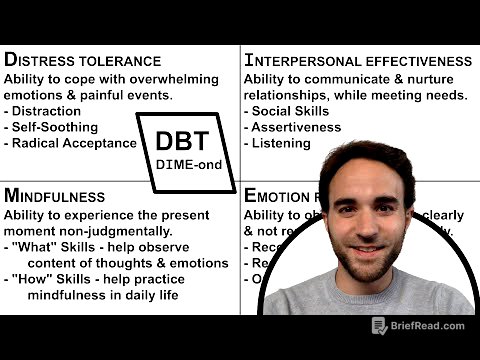TLDR;
The video discusses imposter syndrome, a common feeling of fraudulence despite evidence of one's competence. It affects people across various demographics and is not necessarily tied to mental health issues. The phenomenon arises from the belief that others are equally skilled, leading to self-doubt, and is exacerbated by pluralistic ignorance, where individuals assume they are alone in their insecurities. Overcoming imposter syndrome involves open communication, acknowledging positive feedback, and recognizing one's capabilities.
- Imposter syndrome is a widespread feeling of inadequacy despite evidence of competence.
- It affects people of all genders, races, ages, and occupations.
- Open communication and acknowledging achievements are key to combating these feelings.
Introduction: The Prevalence of Imposter Syndrome [0:09]
The video starts by highlighting that even highly accomplished individuals like Maya Angelou and Albert Einstein have experienced feelings of fraudulence, doubting whether they truly earned their achievements. This feeling, known as imposter syndrome, is common, prompting the question of why so many people struggle with the belief that they are unworthy of their accomplishments or that their skills are inadequate.
The Origins and Definition of Imposter Syndrome [0:45]
Psychologist Pauline Rose Clance first studied this phenomenon, observing that many of her undergraduate patients, despite having high grades, felt they didn't deserve their place at the university. Clance herself experienced similar feelings in graduate school. This phenomenon is referred to as imposter phenomenon, imposter experience, or imposter syndrome. Clance and her colleague Suzanne Imes initially studied imposterism in female college students and faculty, establishing its prevalence in this group.
The Universality and Nature of Imposter Syndrome [1:30]
Since the initial study, imposter syndrome has been recognized across genders, races, ages, and various occupations. It may disproportionately affect underrepresented or disadvantaged groups. The term "syndrome" downplays its universality, as it is not a disease or abnormality and is not necessarily linked to depression, anxiety, or self-esteem.
The Roots of Feelings of Fraudulence [1:56]
Feelings of imposterism often stem from the perception that others are as skilled as oneself, leading to the belief that one doesn't deserve accolades or opportunities. This feeling is not limited to highly skilled individuals; everyone is susceptible to pluralistic ignorance, where people privately doubt themselves but believe they are alone in their doubts because no one else expresses them. It's difficult to gauge how hard others work or how much they doubt themselves, making it challenging to dismiss feelings of inadequacy.
Combating Imposter Syndrome [2:44]
Intense feelings of imposterism can hinder individuals from sharing ideas or pursuing opportunities. Talking about it is the most effective way to combat imposter syndrome. Many fear that asking about their performance will confirm their fears, and positive feedback often fails to alleviate feelings of fraudulence. Hearing that advisors, mentors, or peers have experienced similar feelings can be relieving. Simply knowing there's a term for these feelings can provide comfort.
Strategies for Overcoming Imposter Syndrome [3:22]
Once aware of the phenomenon, individuals can combat imposter syndrome by collecting and revisiting positive feedback. One scientist documented the causes of problems in her lab and realized that most issues stemmed from equipment failure, which helped her recognize her competence. While these feelings may never be entirely banished, open conversations about challenges can help. Increasing awareness of these experiences may encourage frankness about feelings and build confidence in one's talents and capabilities.









